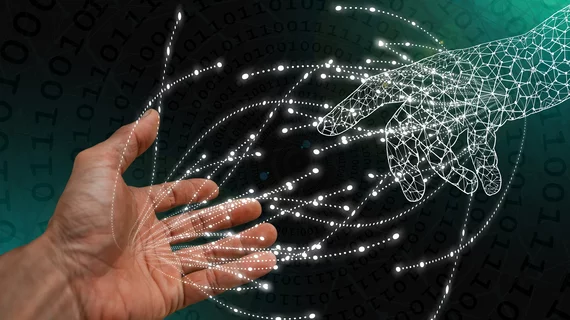True or false? ‘AI does not influence radiologists’ performance’
A healthcare AI startup in Silicon Valley is partnering with a top-tier medical school—and hopefully a few good radiologists—to test a hypothesis that’s increasingly crucial to radiology.
In so many words: Imaging AI does not have much effect on radiologists’ diagnostic judgment.
Whiterabbit, whose products focus on early cancer detection, plans to put that notion to the test in a study slated for two weekends early next year at Stanford University School of Medicine.
In the first session, a number of recruited breast radiologists will read mammography cases without input from AI.
Four to six weeks later, the same participants will re-read the cases while considering their fresh interpretation alongside an automated read from AI.
In an announcement sent to the media, Whiterabbit says it wants to challenge the “longstanding assumption made by the majority of peer-reviewed publications that the use of artificial intelligence does not influence radiologists’ performance.”
The company’s CEO, Alexander Sardiña, MD, adds that the study is timed to arrive as AI-powered products for clinical decision support are growing in capability to “significantly support radiologists’ workflow and inform decision-making.”
The study’s findings, he adds, “could have important implications in clinical settings regarding the adoption of emerging AI technology, potentially overcoming detection and diagnostic challenges.”
Breast rads interested in participating or learning more should email Stanford senior IT project manager Stephanie Bogdan at sbogdan@stanford.edu.

